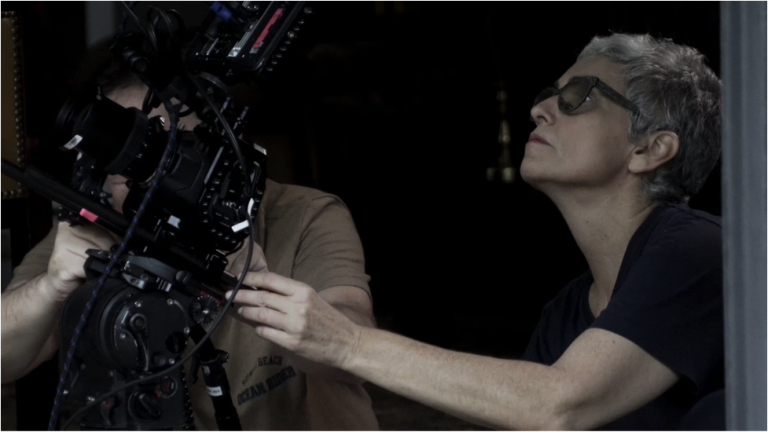
Celina Borges Torrealba Carpi’s New Film Showcases the Solidarity Economy Project in Brazil Through Rosa’s Inspiring Story
02 December, 2024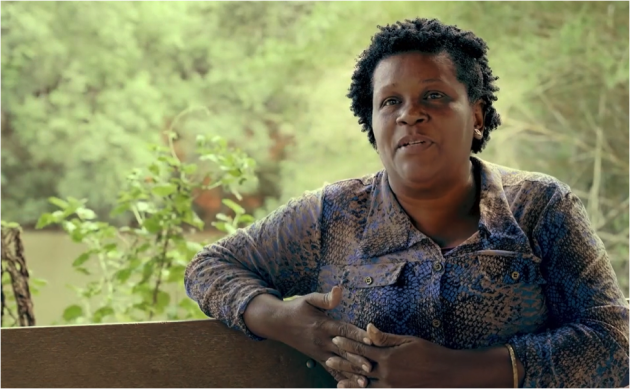
In the early morning hours, a train speeds through a branch line of the Estrada de Ferro Central do Brasil – a railroad in Brazil that spans three states. The train goes from Japeri, one of the poorest municipalities of the state of Rio de Janeiro, where Celina Torrealba’s new short film is set, to the city of Rio.
With around 96,000 residents, Japeri faces many economic challenges that force locals to take that train and commute to greater Rio in search of employment. For Gilza Rosa, the train symbolizes her past routine. For a long time, she took it every day to work as a housemaid in central Rio. Currently, Rosa is the coordinator of Japeri’s cooperative economy group and the leading figure in Celina Torrealba’s documentary produced by Donna Features.
“Solidarity Economy of Japeri,” directed by Celina Torrealba, a Brazilian from Rio, captures the remarkable life and story of a black woman who became a force of change in her community. The documentary uses Rosa’s inspiring example to show how collective efforts can help local businesses.
Japeri: A Poor City in Brazil
One of the municipalities that comprise the city of Rio de Janeiro’s metropolitan area, Japeri is known for hosting the last station of the largest branch of the Central Railroad of Brazil. Even though it is nestled in a favorable location, 50 miles away from Rio, the place where Torrealba’s documentary is set faces numerous challenges in basic sectors, such as housing, education, transportation, water supply, and sanitation.
In 2021, Japeri’s GDP per capita was approximately R$14,400, or around US$2,500 – the lowest GDP per capita in the state, placing the city among the poorest in Brazil. “Filming in Japeri taught me that, despite profound adversities, the power of change lies within the community. Gilza’s engagement with municipal councils and her commitment to involving the community exemplify how grassroots organizations can transform realities,” says the director Celina Borges Torrealba Carpi.
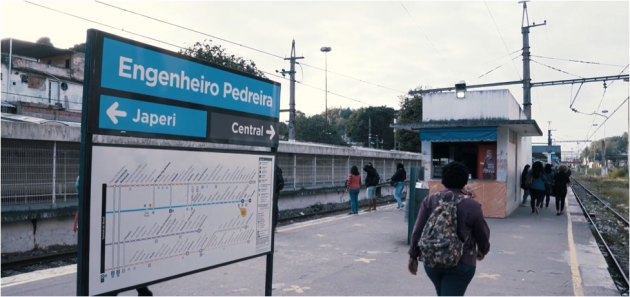
Solidarity Economy in Japeri
Solidarity economy is an economic model promoted by Brazil’s Ministry of Labor and Employment. This model empowers groups of local workers and producers to start businesses with democratic and participatory management and fair distribution of the wealth they produce. Solidarity economy groups exist in cities and the countryside and collaborate through associations and cooperatives. This economic model promotes local commerce and gives power to workers, fostering a sense of community.
Local leaders, such as the main character in Celina Torrealba’s documentary, Gilza Rosa, have brought the solidarity economy initiative to Japeri in the last decade. The group formed in the municipality has been working on public policy and improving local income generation and quality of life.
Through the solidarity economy model, Japeri is becoming a welcoming environment where cultural agents meet at fairs that act as marketplaces, community-gathering sites, and events to promote local tourism. Japeri’s solidarity economy project is gaining national recognition thanks to new laws and policies implemented with the support of civil society and figures like Gilza Rosa.
In April 2022, a new law established the Municipal Council of Solidarity Economy. “I discovered, through Gilza, that the solidarity economy goes beyond simply generating income. It’s about creating a support network where people feel valued and belong. This changed my own vision of how we can think about sustainable solutions for the future,” explained the film’s director.
From Housemaid to Community Leader: Gilza’s Story
“Hello, my name is Gilza Rosa Moraes dos Santos,” says the main character of Torrealba’s newly released short film. “I work as a housemaid in the South Zone [of Rio] and am also an artisan.”
Depicted in the short film “Solidarity Economy of Japeri,” Rosa’s story mirrors the experiences of many black women from underserved communities in Brazil. Rosa has been taking the train to Rio at the break of dawn since she was 18. Working as a housemaid, she has faced the daily challenges of long commutes like many residents of Japeri.
However, in 2014, after being encouraged by her friend Adriana, Rosa started to participate in Japeri’s municipal councils’ meetings, where she discovered new facets of her city, such as its rich agricultural production and lively cultural scene. This experience instilled a deep sense of belonging and responsibility towards her community. Rosa studied the state of Rio’s solidarity economy plans for two years. She also attended meetings to seek government support, which she finally accomplished in 2016.
After that, solidarity economy initiatives flourished in Japeri, giving artisans and farmers a platform to showcase their products. Through volunteer work at the Solidarity Economy Forum, Gilza Rosa connected with initiatives from neighboring municipalities and started coordinating the local solidarity economy group, organizing fairs, and maintaining standards at exhibition sites.
In June 2024, Japeri’s first municipal conference on solidarity economy, themed “Popular and Solidarity Economy as Public Policy: Building Democratic Territories Through Collaborative Work and Cooperation,” took place. During the event, artisans and members of Japeri’s Solidarity Economy Forum discuss public policies affecting the project and actions for developing and supporting popular economic activities in Japeri.
One notable initiative featured in the film was a crochet fashion show proposed by Rosa. Over 80 members of the Japeri Solidarity Economy Forum participated in the event.
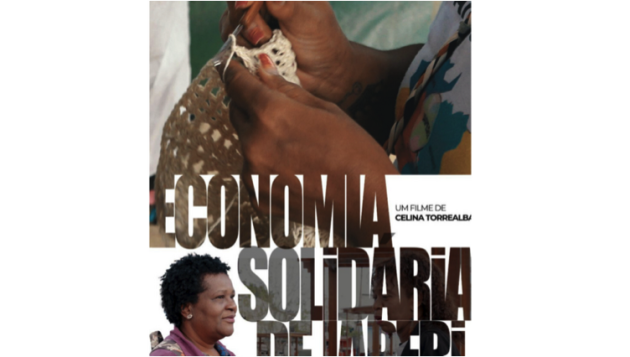
Celina Torrealba’s Film – Local Team and Impact
By taking the spectator through conversations with different women impacted by Gilza Rosa’s work, “Solidarity Economy of Japeri” directly touches the lives of people in Japeri. For instance, the director chose to work with a local team to bring authenticity to the project. “Each team member, from the camera’s assistant to the production, brought not only their technical skills but also their own stories and perspectives on Japeri,” shared filmmaker Celina Torrealba.
The result of bringing in a local team could not be better. In addition to sharing their knowledge and feelings about the city, the crew was able to work on something unique.
“Bringing the local team into the project was a way to show that the people of Japeri have enormous, and often underestimated, potential. Working with them, I realized that the solidarity economy applies not only to crafts or agriculture but also to audiovisual and culture. It is a support and development network that can transform all areas,” emphasized Torrealba.
Celina Torrealba’s short film inspires the Japeri community and black women from underserved areas like Gilza and Adriana, who often face significant life challenges. “Solidarity Economy of Japeri” shows that the people of Japeri can improve their lives and find a source of income, joy, and purpose through crafts and other collaborative economic activities.
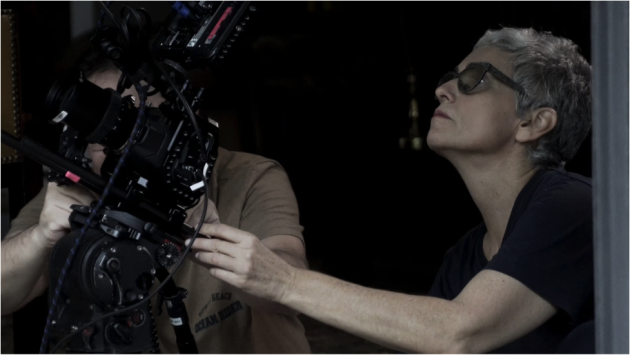
Who is Celina Torrealba?
Founder of the production company Donna Features, Celina Borges Torrealba Carpi, has directed and produced acclaimed documentaries and feature films. Her work includes “The Breeding Shed,” a film about women in the thoroughbred horse industry, and “Art of Diplomacy,” a story about the role of Brazilian artists in World War II. In the realm of fiction, Torrealba has co-produced “Port Authority” (2019), “Wasp Network” (2019), and “The Lighthouse” (2018).
Similarly to “Petrópolis of Each One,” another film directed by Celina Torrealba, “Solidarity Economy of Japeri” explores the local history and delves into the individual’s role in shaping the cultural identity of a city or region.
When questioned about her experience making “Solidarity Economy of Japeri,” Torrealba reflected: “Directing this film was a deeply humbling experience. I met women who, with very little, did so much. The beauty of this concept is something I strive to convey through the film’s aesthetics: simplicity, power, and a quiet strength that gradually transforms everything around it.”
Follow Sounds and Colours: Facebook / Twitter / Instagram / Mixcloud / Soundcloud / Bandcamp
Subscribe to the Sounds and Colours Newsletter for regular updates, news and competitions bringing the best of Latin American culture direct to your Inbox.

